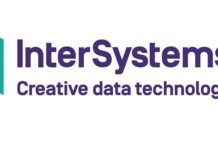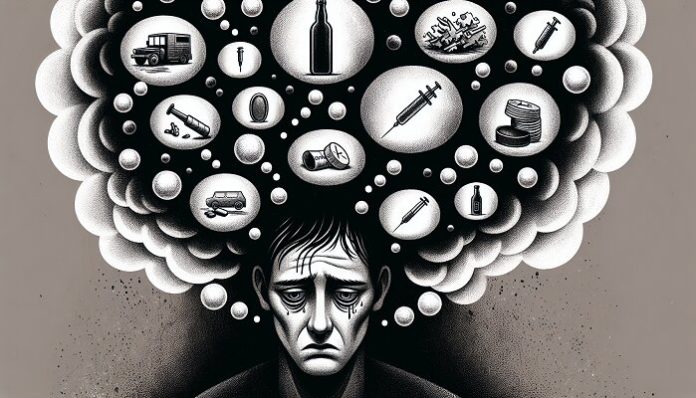Facing addiction is tough; facing society’s stigma of addiction can be even tougher. Why do people with substance use disorders experience unfair treatment, and what can be done about it? This article tackles the stigma of drug addiction head-on, revealing how pervasive attitudes can hinder recovery, affect mental health, and result in societal exclusion. We’ll explore practical strategies for combating stigma from multiple angles, unlocking a more empathetic and informed approach to drug and alcohol dependence.
Key Takeaways
- Stigma of addiction is a concoction of negative stereotypes and discrimination directed at those with substance use disorders, mainly due to the misguided belief that drug addiction is a personal choice and a moral failing.
- The addiction stigma ripple effect creates significant barriers to mental health services and hampers public health initiatives, deterring people with mental illness from seeking treatment and hindering effective policy advocacy.
- Reducing the stigma of addiction requires a collective effort focused on person-first language, educating healthcare providers, and advocating for non-discriminatory policies alongside community support and personal storytelling.
Understanding Addiction Stigma
The term “addiction stigma” denotes the prejudicial treatment and adverse perceptions that people with substance use disorders commonly face. The origin of this stigma usually lies in the false notion that addiction reflects a voluntary decision or a defect in moral character, which perpetuates detrimental stereotypes aimed at those dealing with substance abuse or battling a substance use disorder.
Regrettably, these negative impacts of addiction stigma are extensive, influencing nearly all aspects of an affected person’s life. Compared to other health conditions, society often harbors more critical views towards individuals struggling with addiction. Thereby intensifying the difficulties they face due to this additional layer of discrimination.
To better address these issues and provide adequate support for those impacted by them, it needs deeper insight into what precisely constitutes this type of stigma associated with substances and their use, as well as strategies on how best mitigate its effects within our communities.
Defining the Stigma (According to the Substance Abuse and Mental Health Services Administration)
Stigma surrounding addiction is fundamentally about assigning harmful stereotypes to individuals. Consider the prevalent stereotype of an ‘addict’ as portrayed in films: unkempt, untrustworthy, and dangerous. Such negative attitudes and labels have a profound effect on the health and well-being of those battling substance use disorder.
The prejudicial attitudes and beliefs that give rise to these stereotypes lead to discrimination against people with substance use disorders. This stigma operates like an unseen brand that results in exclusion, unequal treatment, and various obstacles for those suffering from issues related to substance use. So how does this stigma manifest itself in day-to-day experiences?
The Manifestation of Drug Addiction Stigma in Everyday Life
The media significantly influences perpetuating and even heightening prejudicial stereotypes and stigmatizing beliefs towards individuals grappling with substance use disorders. Ways in which the media reinforces this include:
- Creating sensationalized, fear-inducing headlines
- Using dramatic storylines
- Representing treatment as ineffective
- Associating substance use with criminality and danger, such as physical violence and emotional distress
Such representations can negatively shape public opinion, adding to the stigma associated with drug abuse, alcohol dependence, and addiction.
This negative bias manifests through social isolation and is intensified in closer social circles. It appears that stigma transforms based on its proximity to personal interactions affecting community-based public health efforts aimed at addressing these issues. Rather than viewing alcohol and drug addiction as a treatable condition, society tends to perpetuate the idea that long term recovery is a pipe dream.
The Ripple Effect of Substance Abuse Stigma

The stigma of addiction acts like a pebble thrown into water, causing repercussions that ripple out to impact much more than the affected person alone. Such stigma is one of the contributing factors that may cause people who require assistance for substance use issues to delay or avoid seeking help. When stigmatizing language and behavior are used, those who currently use or have previously used illicit drugs can feel alienated and unsafe, which hinders their access to vital services and adversely affects their health as well as prospects in employment and social settings.
These ripples continue to expand outwardly by creating obstacles within mental health services provision while also undermining efforts in public health sectors. It’s crucial for us to understand how this occurs in order for interventions against such detrimental effects of stigma, discrimination, and negative attitudes on individual lives, all people affected by substance use and broader societal programs focused on wellbeing.
Barriers to Mental Health Services
Stigma acts as a major barrier that discourages individuals from seeking assistance for substance use, resulting in low engagement with treatment programs. Obstacles like insufficient insurance coverage, expensive treatment options, and the fear of discrimination at work are exacerbated by stigma, hindering access to addiction treatment programs.
When they do seek care, stigmatized perceptions among healthcare professionals can negatively affect their attitudes, leading to potential misdiagnosis and less than optimal care for those battling substance use disorders. Stigmatizing language perpetuates discrimination and diminishes self-efficacy, severely affecting your social connections, job opportunities, and overall availability of mental health services.
Impact on Public Health Initiatives
Stigma of addiction can also significantly undermine public health efforts. Depictions in media and prevailing discrimination, stigma, and stereotypes often link substance use with aggression and unpredictability, which affects the creation and acceptance of health campaigns by society. The way cultural elements such as race and ethnicity shape perceptions also plays a role in how successful these public health initiatives are.
Yet there is cause for optimism. By promoting awareness about the biological, psychological, and social dimensions of addiction through education, we can challenge false beliefs and end stigma against those with substance use issues. It’s crucial to reorient societal views of addiction from being seen as a moral weakness to recognizing it as a matter concerning health via educational outreach campaigns—this shift is fundamental for reducing and even stop stigma associated with drug addiction.
Personal Toll: The Harmful Effects of Stigmatizing Language
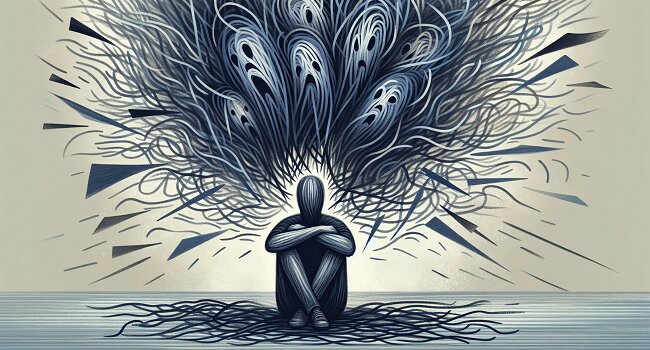
The impact of addiction stigma on a person can be profound. When individuals absorb and begin to believe in negative stereotypes and messages directed at them, often compounded by stigmatizing language, they experience internalized self-stigma. This results in the individual simultaneously combating both their addiction and societal condemnation.
People with mental health issues or addictions, and who are in recovery, are frequently met with continued discrimination as they attempt to reintegrate into society, due in part to the enduring consequences of mental illness stigma. Such stigma acts as a two-fold weapon that significantly impairs an individual’s self-esteem and sense of value. It prompts us to consider what measures might be taken to change this story.
The Power of Words
The pen is indeed stronger than the sword. Words matter and have an immense power. Stigmatizing terms like ‘substance abuser’ and ‘drug addict’ are often used synonymously with neutral terms like ‘person with a substance use disorder’, contributing to public stigma.
Person-first language, such as ‘person with a substance use disorder’ rather than ‘addict’, helps diminish stigmatization by focusing on the individual rather than the disorder. Adopting appropriate and consistent language across all communications is crucial to reduce stigma associated with substance use. A shift in language, a shift in perspective – that’s the power of words.
Overcoming Self-Stigma
People with mental illness or substance use disorders often absorb negative public and structural stereotypes, resulting in self-stigma. This internalization can lead to a reduction in their belief in your own abilities, or self-efficacy, which may impede the recovery process from these conditions.
To combat this challenge, the concept of personal recovery highlights the importance of fostering self-esteem, empowerment, and autonomy as crucial steps. The ultimate aim is to conquer not just addiction but also preserve your sense of value and confidence throughout the battle against substance use disorders.
Strategies to Reduce Stigma of Mental Illness and Foster Empathy
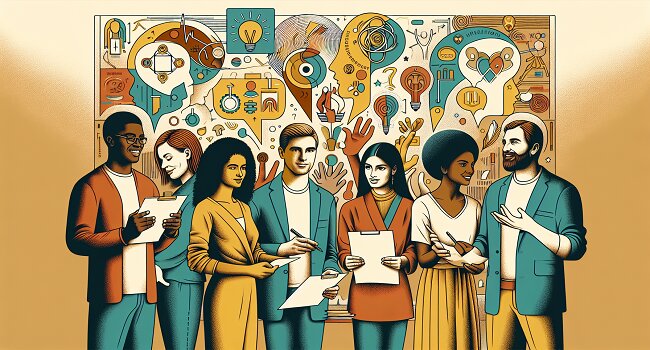
Reducing stigma is a collective effort. Here are some ways we can work together to help reduce the stigma surrounding addiction.
- Adopt person-first language and avoid using derogatory terms.
- Implement human-rights-based approaches that respect individual dignity.
- Advocate for policies that fight addiction-related discrimination.
- Support harm reduction policies that prioritize the health and safety of individuals who struggle with drug use.
- Work towards increasing access to professional treatment, like psychiatric services and drug rehab, through policy changes.
These efforts are pivotal in overcoming societal stigma and creating a more supportive and understanding environment for those who suffer from chronic health conditions with behavioral symptoms, like addiction and mental illness.
Families, too, play a crucial role. Involving families in the treatment process can significantly enhance the effectiveness of recovery and reduce the stigma of substance use disorders by leveraging familial support systems. By gaining the support of family members and fixing familial relationship problems, you can make discussing substance use and supporting your emotional well being part of your everyday conversation.
Education and Awareness Campaigns
Campaigns aimed at raising awareness can help alter the perception of drug addiction within society, highlighting that it is a condition that can be managed and treated rather than an indication of moral weakness. The implementation of guidelines like the ‘Power of Words’ promotes using language that avoids stigma and encourages more constructive everyday conversation about getting help for addiction in health care settings, without fear or shame surrounding your disorder.
Several methods have been identified to enhance the provision of mental health services.
- Training healthcare providers in recognizing mental illness and drug addiction as a treatable condition will lead to improved screening methodologies and treatments.
- Involving community assets with knowledge on cultural and socioeconomic backgrounds
- Applying interactive educational techniques such as role-playing exercises that portray people struggling with drug abuse as ordinary people, to deepen understanding and compassion for those with mental health challenges
- Partnering with administrations responsible for mental health services to confirm the adherence to exemplary practices.
Policy Changes and Advocacy
Laws ensuring equal treatment for mental health issues, including bipolar disorder, and substance use disorders, are essential to addressing systemic disparities in health care benefits. They strive to bring the level of support for behavioral health on par with that provided for physical ailments. Yet public stigma along with prejudiced policies continue to lead to less investment in services and research pertaining to behavioral health when compared with physical health.
Prejudicious institutional practices often treat substance use disorders as a matter primarily of criminal justice rather than public health concerns, perpetuating an environment rife with stigma which leads directly to discrimination. This structural stigma is embedded within current regulations and legislation, potentially fueling societal prejudices towards those struggling with mental and behavioral disorders.
Initiatives focused on advocacy have the potential power to drive legislative reforms that achieve several outcomes.
- Enhance accessibility of treatment
- Protect individuals from prejudice due specifically to their substance abuse
- Eliminate loopholes such as those related to synthetic THC products
- Promote overall public safety
These policy shifts are critical tools in diminishing stigmas associated with substance use and mental disorder treatments.
How Healthcare Providers Can Lead Change
Healthcare professionals, who fight on the front lines in combating stigma, must receive specialized training and interventions to diminish the discrimination encountered by people suffering from mental health conditions. The use of telehealth services and online platforms within health care settings can enhance the accessibility of mental health treatment, which is instrumental in reducing the stigma of addiction.
Within the realm of health care, prevalent stigma leads to disparities in care quality between patients with mental illness compared to those with solely physical ailments. Recognizing treatment effectiveness for substance use disorders among clinicians and caregivers has a profound impact on patient recovery rates.
Training and Best Practices
Transforming negative attitudes begins with comprehensive training. The READ program, a globally extended controlled study with numerous locations, aims to educate medical students on how to diminish stigma through the enhancement of their perspectives, convictions and competencies when confronting discrimination associated with mental illness. This training leverages reflective practice and critical reflection techniques to deepen the future healthcare providers’ comprehension and handling of discrimination, stigma, and stereotypes.
Proper programs aimed at reducing stigma and discrimination among healthcare professionals involve actively recognizing patients grappling with behavioral health conditions as well as consistent care management utilizing collaborative teamwork strategies. Such initiatives are focused on providing healthcare workers not only with the necessary instruments but also fostering empathy within them so they can effectively combat both stigma and discrimination in health care settings.
Integrating Substance Use Treatment
Ensuring access to all FDA-approved medication classes is vital for the effective treatment of opioid use disorder. By combining mental health and substance use treatment into general medical care, like dual diagnosis treatment programs, patients receive a more holistic approach to care that can lead to better outcomes.
Involvement of non-specialist community providers plays an essential role in establishing trust with patients, which is key for maintaining long-term mental health care. Utilizing diverse community providers to administer interventions through local platforms increases the reach and tailoring of mental health treatment services.
The Role of Family and Community in Combating Stigma
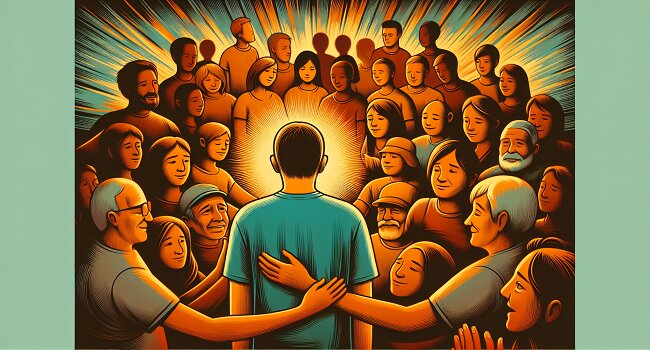
Battling addiction stigma requires a collective effort, not an individual endeavor. The role of the family is paramount in this fight as it provides essential emotional support and nurtures a caring atmosphere that can facilitate the journey to recovery. In effect, family members serve as the primary barrier to stigmatization, offering necessary love, compassion, and backing that are crucial for someone dealing with addiction.
Building Supportive Networks
Developing support networks is crucial for those grappling with mental health issues and substance use as it significantly contributes to the recovery journey. The quest for sobriety by one member of a family can have wide-ranging implications, prompting the need for all members within the family to adapt their behaviors in order to back up this transformative shift. These networks that bolster addiction recovery might include suggestions for nearby treatment centers, encouragement from group meetings, and assistance from local communal entities.
Sharing Personal Experiences
Disclosing individual and family experiences related to substance use disorders promotes healing and helps decrease the associated stigma. The act of recounting one’s own path through recovery can lessen the negative perceptions surrounding addiction, fostering a greater comprehension of its nature.
In community settings, when people exchange stories about managing mental health issues, it encourages social inclusion and attenuates stigma. Healthcare professionals as well as prominent figures have the power to alleviate stigma by initiating discussions on mental health challenges through sharing their personal narratives and accounts.
How To Reduce the Stigma and Discrimination of Substance Abuse
Navigating the complexities of addiction stigma has brought us face to face with harmful clichés, the widespread impact these perceptions have, and their deeply personal consequences. We’ve examined a range of tactics for eradicating this type of stigma—including educational initiatives, public awareness efforts, policy revisions, and active advocacy—recognizing that healthcare providers as well as friends, families, and entire communities play key roles in this endeavor.
This battle against the prejudice surrounding addiction requires a united front where everyone must engage in altering our speech patterns, attitudes toward those affected by addictions, and reforming relevant policies. It is imperative to remember that behind the ‘addict’ label is an individual—a person who merits compassion just like anyone else—and work collectively to tear down barriers created by stigma while forging pathways towards greater empathy and understanding.
Frequently Asked Questions
What is addiction stigma?
Stigma around addiction involves negative biases and discrimination directed at those suffering from substance use disorder, like opioid use disorder, as well as mental illness, largely due to the erroneous belief that their condition is a result of poor moral choices or deliberate decisions.
It’s important not to rush to judgment—understanding and compassion are essential in addressing the intricacies of substance use and addiction, rather than casting blame.
How does stigma affect individuals with substance use disorder?
The issue of stigma is a major barrier for individuals struggling with substance use disorder and mental illness, often impeding their ability to obtain vital health services and negatively affecting their work and social relationships. This problem needs our immediate attention to help those dealing with substance use.
How can we reduce addiction stigma?
To reduce addiction stigma, we all need to work together. Let’s use person-first language, prioritize human rights, raise awareness, and push for policy changes – together we can make a real impact!
What is the role of healthcare providers in combating stigma?
Healthcare professionals, like those at rehab centers in San Diego, have the potential to spearhead the diminishment of stigma through participating in specialized training and intervention strategies, while also blending treatment for mental health and substance use into standard medical practice.
How can families and communities help combat stigma?
Communities and families can fight against stigma by fostering an atmosphere of empathy and open dialogue, which fosters a supportive environment. Such efforts help to diminish the stigma surrounding certain issues, thereby facilitating healing and recovery.











